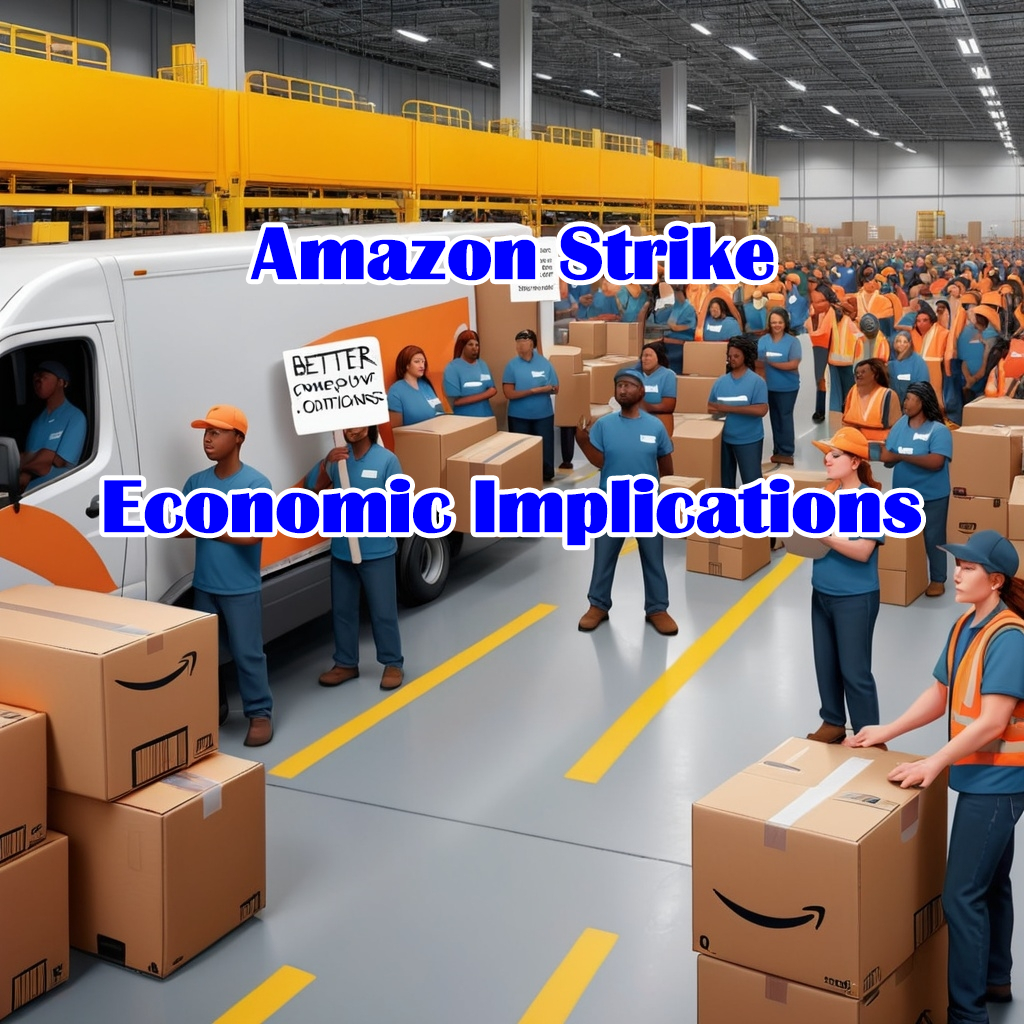
Economic Implications of the Amazon Strike
The recent Amazon strike has raised significant concerns over the company’s operations, its workforce, and the broader economic consequences that could ripple through the e-commerce industry. As workers demand better pay, improved working conditions, and enhanced labor rights, the strike is posing serious challenges to Amazon’s bottom line. For a company that thrives on efficiency, scale, and rapid delivery, any disruption in its workforce could have a wide-reaching impact on its global operations.
Disruption of Operations
One of the most immediate consequences of an Amazon strike is the disruption of operations. With a workforce that is essential to its fulfillment centers, warehouses, and delivery networks, even a temporary strike can lead to delays in orders, slower deliveries, and potential backlogs. For a company like Amazon, which prides itself on quick delivery, any slowdowns can lead to frustrated customers and a loss of business. This can translate into a decrease in revenue, particularly during peak shopping seasons when timely delivery is crucial.
Financial Losses and Revenue Impact
The financial repercussions of an Amazon strike can be severe. Strikes disrupt the flow of goods, leading to lower sales in the short term. Given Amazon’s dominant position in the online retail market, even a slight reduction in its ability to fulfill orders can create a noticeable decline in its earnings. Furthermore, if the strike lasts for an extended period, Amazon may face long-term consequences, including the loss of customers to competitors and the need to invest in resolving the labor disputes, which could add to operational costs.
Increased Labor Costs and Negotiations
Another major economic implication of the strike is the potential increase in labor costs. If Amazon is forced to meet worker demands—such as higher wages, better benefits, and improved working conditions—it may have to increase its labor expenses significantly. While Amazon has the financial capacity to absorb some of these costs, it could also result in higher product prices, as the company may need to pass on those costs to consumers. Additionally, prolonged negotiations and possible strikes in other locations could strain the company’s resources and divert focus from its core operations.
Impact on Shareholder Confidence
Amazon’s stock market performance is another area that could be directly impacted by the strike. Investors typically look for stability in a company, and any disruption in operations or public relations challenges can lead to a decrease in investor confidence. A prolonged strike could result in a decline in stock prices, affecting Amazon’s market capitalization and overall financial health. Shareholders may become wary of the company’s future profitability if strikes become a recurrent issue, making it harder for Amazon to maintain the high levels of investment it has historically enjoyed.
Broader Economic Effects on the E-commerce Industry
The economic implications of the Amazon strike are not confined to the company alone. As one of the largest players in the global e-commerce market, Amazon has a considerable influence on various industries, including logistics, retail, and technology. A disruption in Amazon’s operations could cause a ripple effect, with suppliers, third-party sellers, and logistics companies feeling the strain. Smaller businesses that rely on Amazon’s marketplace for sales could also face delays in order fulfillment, impacting their revenue and growth.
Additionally, competitors like Walmart, Target, and eBay could see an uptick in business as consumers look for alternatives. This shift in customer loyalty could result in market share redistribution in the e-commerce sector, affecting the overall competitive landscape.
Long-term Structural Changes
Lastly, strikes like this can lead to long-term structural changes in Amazon’s business model. In the face of labor unrest, Amazon may be forced to reconsider its workforce management strategies, including its reliance on temporary or contract labor. There could be a shift toward automation and artificial intelligence, as Amazon looks to reduce dependency on human workers in certain areas of its business. While automation could help alleviate labor disputes, it also carries its own economic challenges, including the high upfront costs and the potential for public backlash over job losses.
The economic impact of the Amazon strike is complex and multi-dimensional. From the immediate disruption of operations and revenue loss to the potential long-term effects on shareholder confidence and the broader e-commerce sector, the strike signals that Amazon may have to confront a shift in how it manages its labor force and operations moving forward. How the company responds to these demands will be critical in determining whether this labor unrest will become a defining issue for the company or if it can maintain its position as the undisputed leader in global e-commerce.





